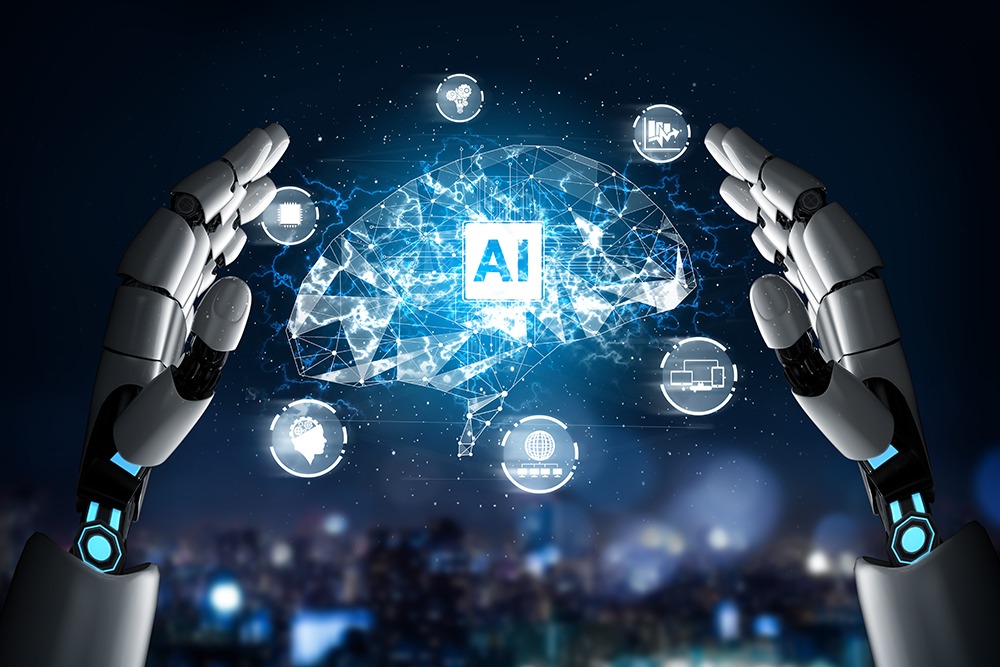Artificial intelligence (AI) has rapidly transformed from a science fiction fantasy into a palpable reality with profound implications for businesses worldwide. From Chabot’s to autonomous vehicles, AI algorithms enable machines to take over an expanding range of tasks once exclusively performed by humans. AI is undisputedly disrupting enterprise operations, business models, and even entire workforces at an unprecedented pace.
AI Adoption is Accelerating Across Industries
The last decade witnessed AI maturation from an experimental concept into mass adoption. Tech giants in particular race to infuse AI throughout product offerings reaping immense value. Global revenues from artificial intelligence are projected to skyrocket from $644 million in 2022 to a staggering $126 billion by 2025. An analysis by McKinsey estimates 70% of companies will implement some form of AI by 2030.
AI investment is concentrated in several key business areas:
- Customer Service– Chatbots and virtual assistants automate customer interactions, while sentiment analysis tools inform human agents. 30% of customer service operations will delegate to AI this year.
- Cybersecurity– AI algorithms identify malware, suspicious behavior, vulnerabilities, and other threats. The AI cybersecurity market could reach $46 billion by 2026.
- Financial Services– AI informs everything from credit decisions to fraud detection within banking. Worldwide revenue from AI in finance will grow over 23% annually.
- Manufacturing & Logistics– Smart factories leverage computer vision, predictive maintenance, and inventory optimization via AI. Over 50% of organizations now use AI in supply chain applications.
The most competitive companies are already integrating AI through their organizational DNA – rather than treating it as an ad hoc tool.
How Does AI Create Business Value?
AI’s multifaceted applications Extract Hidden Insights, Accelerate Innovation, and Refine Decision-Making.
Extract Hidden Insights
Sophisticated machine learning algorithms discern complex patterns within massive, previously incomprehensible datasets. Key areas this benefits businesses include:
- Customer Analysis– Segment consumers based on behaviors, lifetime value, churn risk.
- Market Research– Rapidly analyze economic shifts, competitor activity, industry disruptions.
- Risk Management– Detect fraudulent transactions, model portfolio volatility, assess cyber threats.
Accelerate Innovation
AI powers new products and business models, while optimizing internal operations.
- Enhance Products– Conversational interfaces, personalized recommendations, and intelligent search redefine user experiences.
- Support R&D– AI simulates molecular interactions accelerating drug creation by years and saving billions in costs.
- Optimize Processes– Bots automate mundane tasks, predictive maintenance reduces equipment downtime, and supply chain optimization saves massive logistics costs.
Refine Decision-Making
Augmented intelligence helps leaders make faster, more informed and consistent choices.
- Predictive Forecasting– Project revenue growth, future talent needs, geopolitical risk, and other essential insights.
- Prescriptive Guidance– AI advisors suggest optimal strategies, investments, negotiations tactics.
- Risk Mitigation– Identify supplier vulnerabilities, audit transactions for fraud, model acquisition scenarios.
Implementing AI Presents Challenges
However, executives cannot blindly pursue AI without appreciating inherent challenges.
Bias & Ethics
If input data or algorithms have embedded biases, AI models will propagate discrimination. Organizations must proactively assess for fairness and transparency. Ongoing debate also surrounds AI ethics including privacy, liability, job losses, and other areas.
Skills Gaps
Most companies lack specialized AI talent – especially for cutting-edge techniques like deep learning. Retraining programs upskill employees, although fierce competition persists for scarce data scientists.
Data Complexities
Building accurate AI demands immense datasets. Most organizations struggle consolidating data trapped in siloed systems. Cleaning and labeling data for AI training also requires effort.
The Future of Business is Automated
Despite some hindrances, AI adoption will only accelerate across industries. As AI capabilities grow more powerful, no modern business can ignore this technological transformation. Savvy executives embrace AI’s benefits today to compete tomorrow. AI is undisputedly disrupting enterprise operations, business models, and even entire workforces at an unprecedented pace. With prudent strategy, adequate data governance, and understanding of responsible AI – companies can harness automation to propel extraordinary innovation.




